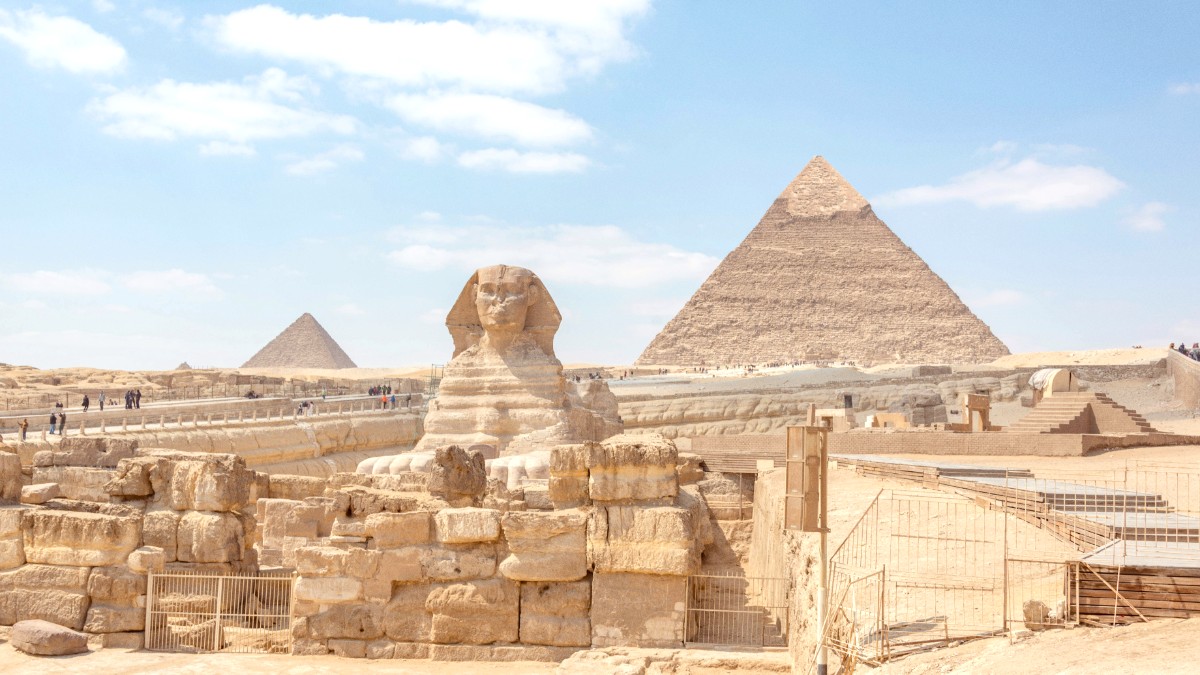
Cairo, Egypt
Egypt faces environmental issues like water scarcity and waste management. The Giza Pyramids are within a protected zone. Supporting official conservation efforts and reducing your own waste are good practices. Be mindful of water usage.
Always ask before taking photos of people, especially women and children. Dress modestly, notably at religious sites. Learning a few basic Arabic phrases shows effort. Be patient and accepting of cultural differences.
Directly support local communities by choosing local guesthouses, guides, and artisans. Purchase fair trade crafts. Bargain fairly in markets. Be aware of common scams and avoid practices that exploit animals or children.
Egypt faces environmental challenges; your choices matter.
The Giza Pyramids belong to a protected archaeological zone. Preservation efforts are ongoing to shield the site from urban expansion and environmental degradation, including issues with groundwater. Support official conservation efforts to help these sites continue.
Waste management in Cairo presents a significant challenge. Public recycling infrastructure is limited. Therefore, minimizing your personal waste production is a good approach. Egypt is a water-scarce nation, heavily dependent on the Nile River. Be mindful of your water usage, especially in hotels. Shorter showers and towel reuse make a difference.
Consider offsetting your flight emissions through reputable carbon offset programs like Terrapass. While this practice does not directly cut down on emissions from your flight, these programs invest in projects that reduce greenhouse gases elsewhere. It's a way to mitigate your environmental footprint.
A growing number of hotels and tour operators are adopting more sustainable practices. Look for certifications or stated environmental policies when booking your accommodation or tours. Inquire about their dedication to local sourcing and energy efficiency measures. Ethical tour operators like G Adventures specialize in responsible travel.
Support organizations dedicated to preserving Egypt's archaeological sites and cultural heritage.
Support ConservationChoose products from companies committed to environmental and social responsibility.
Shop SustainablySupport organizations dedicated to preserving Egypt's archaeological sites and cultural heritage. Your entry fees often put money towards these efforts. These contributions are for maintaining and protecting the ancient wonders for future generations and research. Choose responsible tour operators and guides who prioritize site integrity.
Always ask for permission before taking photos of people, especially women and children. A simple gesture or "Mumkin soura?" (May I take a picture?) is often enough. Dress modestly, especially when visiting religious sites (mosques, churches) and in public. This shows respect for local customs. Learning a few basic Arabic phrases, even a few words, shows effort and is appreciated. Be patient and accepting of cultural differences. Things may operate on a different timetable or with different social norms.
People are not tourist attractions. Avoid intrusive photography, especially candid shots of individuals without their consent. Respect privacy. Military and government buildings should not be photographed under any circumstances. Ignoring these rules can lead to serious issues. Be especially sensitive with images of children.
Remove your shoes before entering mosques and some Coptic churches. Women should cover their hair, arms, and legs before entering mosques; carrying a scarf for this purpose is advisable. Maintain quiet and respectful behavior inside religious sites. Avoid visiting during prayer times if possible, or be very discreet if you are inside during those sacred moments. Observe all posted signs regarding conduct and photography.
Egypt is a patriarchal society. Women travelers may encounter unwanted attention; dressing modestly and ignoring such behavior is often the best course. Solo female travelers should take extra care, especially at night. Public displays of affection are generally not common. Homosexuality is not illegal, but it is not socially accepted. Discretion is advisable.
Be aware of cultural norms regarding gender interactions.
Modest attire and discretion in public spaces are recommended.
Approach all cultural aspects with an open mind and respect.
Your tourism dollar can support local communities directly.
Seek opportunities that directly benefit local communities. Consider staying in locally owned guesthouses.
Participate in tours that employ local guides and contribute to local projects.
Eat at local restaurants, use local guides, and buy souvenirs directly from artisans. This money stays within the local economy.
If you wish to donate, do so through established, reputable charities or local community projects.
Giving money directly to beggars can sometimes perpetuate begging and exploitation.
Research local NGOs or organizations focused on education, health, or poverty reduction for impactful donations.